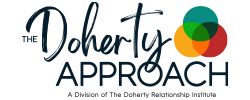In the realm of couples therapy, agency plays a very crucial role, influencing both therapists and clients alike. Elizabeth Doherty Thomas, co-founder of the Doherty Relationship Institute, sheds light on the significance of agency in therapeutic dynamics.
Introduction: The Role of Agency in Couples Therapy
Agency, as defined by Thomas, encompasses the fundamental sense of control and autonomy individuals possess. Rooted in the ability to make choices and act according to personal desires, agency permeates every aspect of human interaction. This concept, Thomas asserts, transcends cultural boundaries, serving as a universal cornerstone of human behavior.
Drawing from her extensive experience and insights gleaned from her father, Bill Doherty, a seasoned couples therapist, Thomas underscores the prevalence of agency within therapeutic contexts. Through meticulous research and observation, Thomas reaffirms the omnipresence of agency, emphasizing its undeniable influence in shaping therapeutic outcomes.
Universal Influence: Agency in Human Behavior
One key aspect Thomas highlights is the agency wielded by clients in the therapeutic process. Particularly in the initial stages of therapy, clients may exhibit varying degrees of engagement and receptiveness. Some may readily embrace the therapeutic journey, while others may express reservations or hesitancy. Thomas advocates for honoring clients’ agency, acknowledging their right to voice concerns or discontinue therapy if it does not align with their needs or expectations.
Therapists’ Autonomy and Responsibility
Conversely, therapists themselves possess agency—a fact often overlooked in therapeutic discourse. Therapists, too, have the autonomy to assess the therapeutic alliance and determine the appropriateness of continuing treatment. Thomas emphasizes the importance of therapists gracefully acknowledging and addressing instances where clients may exhibit hesitancy or lack of engagement.
Navigating Client Reservations: The Traction Protocol
To address these nuanced dynamics, the Doherty Relationship Institute offers a traction protocol, providing therapists with a structured approach to navigating client reservations. This protocol empowers therapists to gently address and explore client concerns, fostering a collaborative therapeutic environment built on mutual respect and understanding.
In conclusion, understanding and navigating agency is essential in couples therapy. By recognizing and respecting both clients’ and therapists’ autonomy, therapists can cultivate a therapeutic space conducive to growth and transformation, empowering individuals to embark on a journey of self-discovery and relational healing. In essence, acknowledging agency fosters a collaborative therapeutic environment for all.
